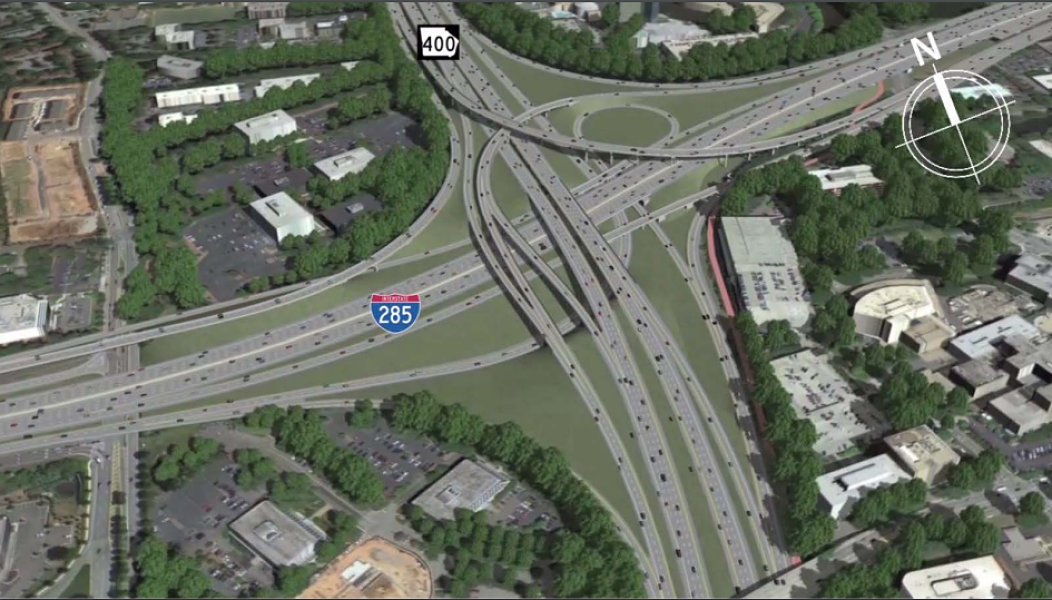In their fourth Highway Boondoggles report, U.S. PIRG and the Frontier Group profile wasteful highway projects that state DOTs are building across the country. Today's boondoggle: the I-285 and SR400 Interchange Rebuilding in Atlanta, Georgia. The expensive interchange project goes far beyond necessary repairs to add miles of new lanes on two highways, and is moving forward even as Atlanta residents clamor for more and better transit.
Aging interchanges can be dangerous and updating their design can be necessary to keep drivers safe. Yet in Georgia, the need for an interchange design update has led to something far larger.
Georgia has begun preparing for construction on a $596 million project to rebuild and expand the interchange of Interstate 285 and State Route 400, and has begun construction on related projects along stretches of road near the interchange. According to a report by the Atlanta Journal-Constitution, after the project’s conception it “morphed far beyond its original scope” after state leaders “latched on to a truly mammoth version of the concept, one that would add miles of lanes adjacent to both major highways and consume an amount almost equal to the state’s entire annual road construction budget.” The project is similar in scope to Georgia’s famous “Spaghetti Junction,” the I-85/I-285 interchange that consists of miles of twisting and turning roads and ramps, and multiple levels of flyovers. As the Journal-Constitution notes, that project provides a preview of what motorists can expect: temporary relief from traffic jams, followed by a return to “gridlock purgatory.”
Meanwhile, the Atlanta region is working to make urgent transportation improvements to support the city’s revitalization and growth. Nearly twice as many Atlanta residents say they would prefer transit upgrades to new roads. In 2016, Atlanta voters approved a half-cent sales tax to support $2.5 billion in transit improvements over the next 40 years. The money will be used to help expand Atlanta transit, which today is simply too scarce to fill the city’s needs. And in 2018, Governor Nathan Deal signed legislation that will unify Atlanta-area transit under a single service, put in place a funding framework for future improvements, and provide $100 million for future projects. But Atlanta has significant work ahead of it to create a system that serves its residents transit needs and will need substantial new funding to approach the level of per capita transit spending made by many other major cities.






